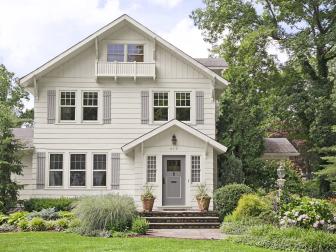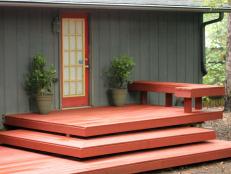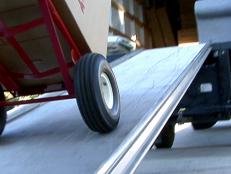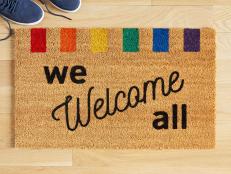How Much Mortgage Can I Afford?
From property taxes to utilities, the costs of owning a home adds up quickly. Here's how to calculate how much you can afford in monthly mortgage payments.
To figure out the cost of owning a home, the first step is to determine how much mortgage you can afford. Be honest about what you spend and what you can afford.
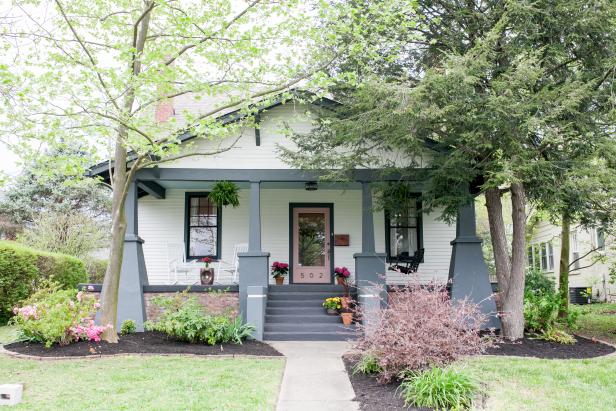
Catherine Truman
In all your excitement about the prospect of buying a house, you may be tempted to twist your financials to appear more desirable to a potential lender. Instead of admitting the balance on your credit card is $7,000, you may give a rosier figure of $5,000. It will be lower in a few months, right?
Remember, though: Buy too much house and you’ll be flat on your back financially. So, when calculating what you’re comfortable paying in a mortgage, it’s important to take an honest look at your spending and figure out what your monthly and annual expenses will look like as a homeowner. This includes obvious expenses such as mortgage, property taxes and homeowner’s insurance, but it also includes variable costs such as home repairs and utilities.
Banks look at factors such as income, credit reports and assets to decide how much mortgage you qualify for — but they do not look at other monthly expenses that can affect your ability to pay your mortgage. It is up to you to calculate these additional expenses to determine what mortgage you can comfortably pay now and in the foreseeable future. “The key is to sit down and create a budget while breaking down every monthly expense you have,” says Ralph DiBugnara, senior vice president at Cardinal Financial and President of Home Qualified. “You want to be comfortable with your payment and not working to just pay your mortgage.”
To help calculate how much you can afford in monthly mortgage payments, write a list of all your monthly and annual expenses to get a full picture of your finances. Begin with the obvious home ownership costs. These costs are bearable — people pay them every day — as long as you know what's coming. You may even want to scale back the size of the home you’re looking for in order to bring the whole package in line with your budget.
Here’s a list of potential monthly fees and expenses you’ll encounter as a homeowner:
Insurance
Banks won’t let you complete the home-buying deal without it, so shop wisely. Homeowner’s insurance — also referred to as “hazard insurance” — on mortgage documents, provides basic protection against fire and theft. It does not generally cover flood damage; flood insurance is an entirely separate entity that you will be required to purchase if you live in a flood-prone area. Hint: Consider bundling your homeowner’s insurance with your auto insurance to get a bargain price.
Property taxes
You can’t avoid these, either, but consider them a good thing: Property tax helps fund schools, law enforcement, fire departments, water and sewage systems, local infrastructure and other community services. Depending on where you live, you may be responsible for both city and county property taxes. Call your county property assessor’s office to be sure. Local tax rates vary, but your home is typically taxed on its assessed value, an amount equal to a fraction of its appraised value, which is the number you’re probably familiar with from the loan-securing process. Taxes can add hundreds of dollars to your monthly payment, and the figures on your good faith estimate may not be accurate, so find out the final number before you sign the dotted line.
23 Things Every First-Time Homebuyer Should Know
You’re about to make the biggest investment in your life — so do your homework and learn about bidding strategies, down payment options, building equity, how to leverage inspections and more.
Private mortgage insurance (PMI)
If your down payment is less than 20% of the mortgage value, you may have to foot the bill for PMI, which protects the lender in the event you default on the loan. This can tack on as much as a couple of hundred dollars per month, depending on the size of your loan.
Homeowner’s association fees (HOA)
If you’re buying into a subdivision or a condominium community, you may have to pay for the monthly upkeep of common areas and other shared expenses. Some HOA fees are paid yearly and are quite inexpensive. On the other hand, some co-op fees in expensive urban areas run up to four figures per month. Some states allow associations to foreclose on homes with unpaid fees, so don’t treat them as optional. Find out if your state imposes limits on HOA power, including how much fees can increase per year.
Utilities
If you’re moving from an apartment to a home for the first time, know that the increase in square footage (not to mention water for a newly sodded yard) can pack a real punch in the form of a huge utility bill. Plan to implement some energy conservation measures, like light-blocking blinds and compact fluorescent light bulbs, to offset the tab.
What's the Difference Between a Condo, Co-op and Loft?
Find out the advantages and disadvantages of these urban abodes. Plus, learn about HOAs, and get advice on buying property and hiring a real estate agent.
Maintenance
This won’t show up in your mortgage payment, but it’s no less real an expense. Be sure you have a monthly budget set aside for repairs and upkeep. DiBugnara recommends paying special attention to costs such as servicing appliances, floor and carpet cleaning, painting, snow removal and general upkeep like replacing floodlights. These are all costs that add up over time. Also, plan for unexpected expenses such as a new roof or water heater. “If your house is 10 years old, that means that so are your water heater and furnace,” says DiBugnara. “Things will go wrong. It’s smart to always keep a reserve, if possible, to head off these issues as they arise. Even new houses will have add-ons and updates needed. Most new home builders will give you the bare minimum of what is needed.”
Consider all the other expenses you will be incurring in other areas of your life. These expenses directly impact the amount of mortgage you can comfortably make each month, so it’s important to be honest and as thorough as possible. A mortgage lender will tell you how much they are willing to lend you, says DiBugnara, but this does not necessarily tell you what you can afford. “A mortgage should be a growing long-term investment that you are contributing monthly, but at the same time it has to be affordable so you can pay for the rest of your lifestyle,” says DiBugnara.
Below are other monthly expenses to consider:
- loans - car, student, other
- insurance - car, life, other
- credit cards
- food and entertainment
- school tuition and/or child care
- retirement accounts
- car payment
- gifts
- medical bills
- vacations
- charitable contributions
In a competitive market, consider preparing a monthly expenses checklist and collecting all associated paperwork (including bank statements, pay stubs and tax returns) to get pre-approved for a mortgage amount. Though this step isn’t required, it will show sellers that you are serious. It will also help to keep you in check when you fall in love with a home priced too far out of your pre-approved range.
Pros + Cons of Rent-to-Own Agreements for Buyers and Sellers
For both the seller and homebuyer, renting to own a house can be a dream come true — or a nightmare. Find out if this type of real estate transaction is right for you.

.-Battle-on-the-Beach-courtesy-of-HGTV.-.jpg.rend.hgtvcom.196.196.suffix/1714761529029.jpeg)







